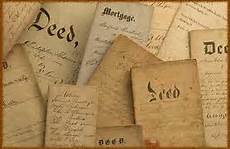
Owning a lordship title is such and privilege and joy. Knowing that you own a piece of English history, perhaps connected to an ancestor or place connected to your family, is very humbling and exciting. The best news is that any of us can own a lordship title, a little piece of “Old England”.
But you must deal carefully with a trusted source. Manorial Counsel Limited is the leading authority and purveyors of reconstructed hereditary lordship and barony titles.
Manorial Counsel Limited has taken a completely different approach to owning a right to an English lordship title. Working with a large legal team made up of solicitors and barristers, they have devised a novel solution to the legal issues surrounding acquisition/ownership. With confirmation of what English law defines as ownership of a lordship title they are the foremost in the field.
Whereas other “title sellers” are trying to prove an almost impossible situation that you own English title rights Manorial Counsel Limited has devised a way to create a new legal right based on the original. This new right is identical in every way apart from how it was created. So instead of proving an ownership they will guarantee that it is impossible to prove an ownership. They will research a particular lordship title from history and identify what records remain. From these a risk assessment is undertaken whether a legal equitable challenge could be mounted. Using this intellectual property their legal team convert this into a right to use the English lordship title. The beauty of their method is that they sell you a new legal right based on the original Custom law. If anyone was to try and mount a challenge based on the old rights, they would fail as your right is justified in a completely different part of English law. Thus they have managed to devise a method of allowing their customers to enjoy and be proud of an English lordship title without any of the risks involved.
For further information please contact Manorial Counsel Limited who are experts and specialists in manorial and incorporeal law, at http://www.manorialcounselltd.co.uk To view a partial list of their titles for sale, go to http://www.manorialcounselltd.co.uk/lordship-titles-for-sale.
An English lordship is much older than you would believe. They originate from the Roman Empire when the Romans controlled what is now England. The efficient Romans implemented a method of land management so that they did not have to collect taxes from all land owners but made a single land owner responsible for the collect of taxes for an area. This system was adopted by the Saxons when they took over from the Romans. At the Norman Conquest in 1066, which is when many people assume lordship titles were first use. William the Conqueror adopted this framework but also introduced features of manorial land management from Normandy. This hybrid form of land management still retained the same principles of a single individual responsible for tax collection on behalf of the Crown. So we can quite confidently state that lordships as we know them now are about two thousand years old and maybe older. William the Conqueror also retained the same areas of land, with very little changing. We know this as the Domesday Book, compiled towards the end of Williams reign in 1086, lists the lords prior to the Conquest and the lords after. The Domesday Book therefore can provide us with the names of lordships dating back to the Romans in many cases.
There are two main types of English lordship title which could not be more different. For hundreds of years the Crown has bestowed personal titles on individuals called peerages. These are divided into two categories, inheritable and non-heritable. Queen Elizabeth II very rarely bestows an inheritable title. However her predecessors gave mainly inheritable ones. These titles are for an individual and CANNOT be transferred to anyone else. On the death of the holder, depending on any other conditions the Crown made when bestowing the title, a lordship title will either fall into abeyance (not be used) or will be taken up by a living descendant of the holder who meets the Crown’s requirements. This type of lordship title cannot be acquired.
The English lordship titles that can be acquired come from English custom law as explained above, and are most commonly called “Lord of the Manor” titles. As they are a legal property, they can be bought and sold like any other property but as they have no physical presence their acquisition is fraught with dangers as ownership of a lordship title can only be proven by a complete, correctly executed and concurrent set of deeds from the time of grant or Time Immemorial. As with peerages there are different types. ALL of them are inheritable. They have existed for many hundreds if not thousands of years and like the land from which they derive their names the lordship title legal rights will last forever.
An industry buying and selling rights to English lordship titles has existed for approximately 40 years. In this time “title sellers” and so-called experts have created myths about the whole subject. These are a selection of the most common for you to be cautious of:
An English lordship title:
1. Ownership CANNOT be proven by a signed statutory declaration by the last known purported owner. As stated above ownership can only be proven by a complete, correctly executed and consecutive set of deeds from time of grant or Time Immemorial (exceptionally rare)
2. Is not a pile of paper, however old the papers are
3. Does not entitle you to sit in the House of Lords
4. Does not give you UK citizenship
5. Can be owned by anyone, irrespective of your nationality
6. Does not come with a manor house
7. Does not come with manorial rights.
l rights.




Leave a comment